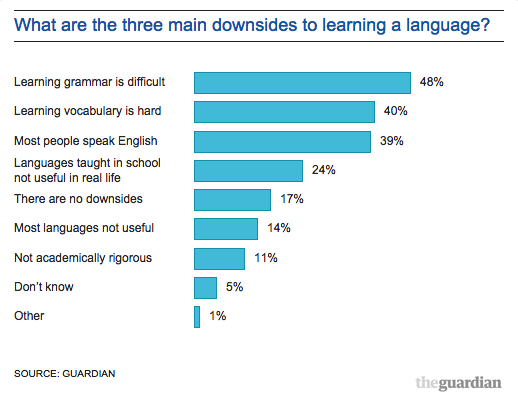‘’To have another language is to have another soul’’, said Charlemagne. Languages open door to new horizons, allow you to meet diverse people and experience the world from a different angle. They can also most definitely create better job prospects, not only for working abroad, but also in the UK. The number of benefits speaking different languages brings along seems to be countless. But do young people truly realise these advantages, and if they do, and do they care?
Looking at this data, the simple answer would be no. According to JCQ, the number of students applying for A-level language courses is dropping each year and the number of acceptances for language degrees has last year been the lowest in over a decade! These statistics are rather alarming, especially giving the fact that the UK never really was legendary for its multilingualism.
Nevertheless, research prepared for the Guardian and British Academy by ICM shows a far more complex picture of the youth approach to learning new languages in United Kingdom. Nearly 20% of young people between the ages of 14-24 interviewed in the survey, claimed to speak another language at home with their families, and 70% of them are hoping to learn another language in the future.
The study also exposed somewhat of a conflict in the hearts of the youths. Young people seem to understand the economic and social advantages speaking a foreign language offers and the opportunities it gives in the future, yet, they also seem to see being born a native English speaker as both; a blessing and a curse as 39% of respondents are put off by the opinion that ‘’Most people speak English’’ and 14% says that ‘’other languages are not useful.’’ The two main downsides which discourage students from learning a new language is difficult grammar and vocabulary.


